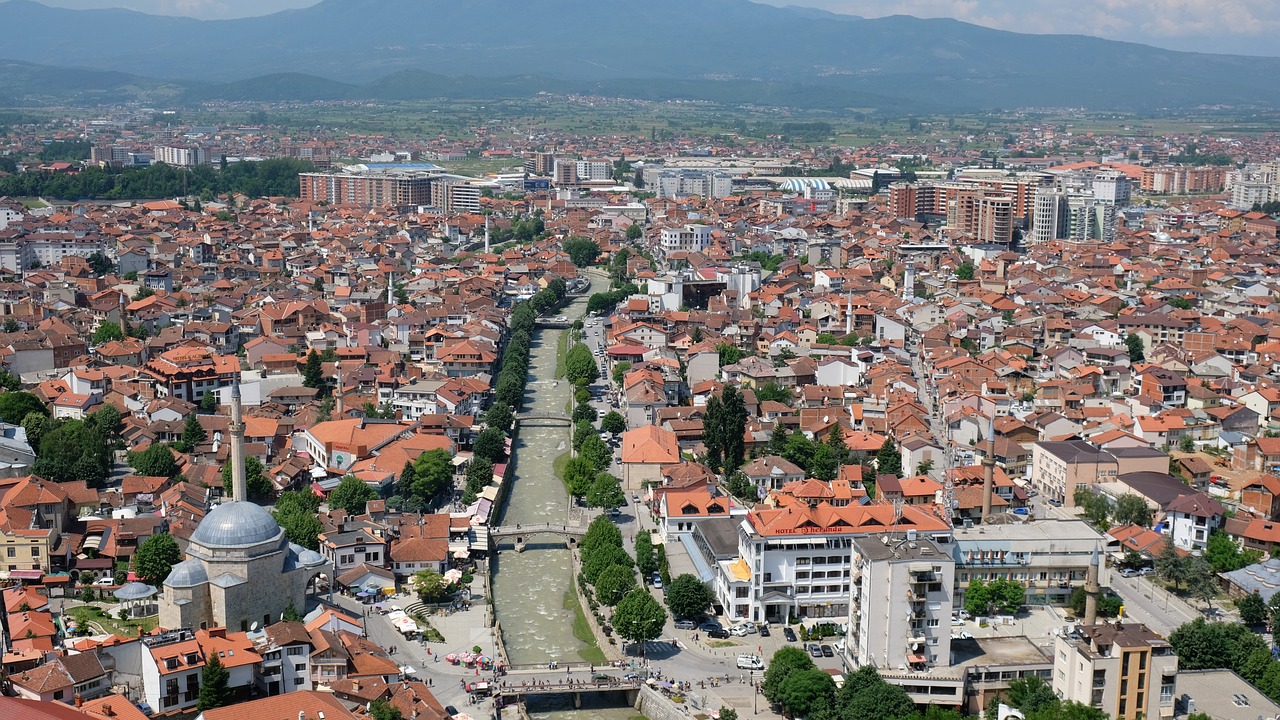Managing Finances and Payments while Working in Kosovo
Kosovo, located in Southeastern Europe, is a landlocked country known for its rich history, vibrant culture, and breathtaking natural beauty. For those working in Kosovo, managing finances and payments effectively is crucial. Whether you are an expatriate, a local resident, or a digital nomad, understanding the financial landscape and payment options available can streamline your financial transactions and ensure a smooth experience.
Banking Services in Kosovo
Image of Kosovo:

- Commercial banks: Kosovo has a well-developed banking sector, with several commercial banks operating in the country. Some of the major banks include Raiffeisen Bank, ProCredit Bank, and NLB Bank. These banks offer a range of services such as current accounts, savings accounts, loans, and credit cards.
- Online banking: Most banks in Kosovo offer online banking services, allowing you to conveniently manage your finances from anywhere with an internet connection. Online banking enables you to check your account balance, make transfers, pay bills, and access other banking services.
- ATMs: ATMs are widely available in Kosovo, allowing you to withdraw cash and perform other basic banking transactions. It is advisable to use ATMs located within bank premises or in well-populated areas for security reasons.
- Foreign currency exchange: If you need to exchange foreign currency, you can do so at commercial banks or authorized exchange offices. It’s important to compare exchange rates and fees to ensure you get the best deal.
Payment Options in Kosovo
- Cash: Cash is widely accepted in Kosovo, especially for day-to-day transactions. Ensure you have enough local currency on hand for small purchases and in places where card payments may not be accepted.
- Debit and credit cards: Debit and credit cards are commonly accepted in larger establishments such as hotels, restaurants, and supermarkets. Visa and Mastercard are the most widely accepted card networks in Kosovo. However, it is advisable to carry some cash as a backup, as smaller businesses and rural areas may only accept cash payments.
- Mobile payments: Mobile payment solutions such as ValaPay and IPKO Mobile Wallet are gaining popularity in Kosovo. These services allow you to make payments using your mobile phone, eliminating the need for physical cash or cards.
- Online payments: Online shopping and e-commerce are growing trends in Kosovo. You can use your debit or credit card to make online payments on local and international websites. Additionally, various online payment platforms, such as PayPal, are widely accepted.
Taxation in Kosovo
Image of Kosovo:

- Personal income tax: In Kosovo, personal income tax is progressive and ranges from 0% to 10%. The tax rate depends on the amount of income earned. Non-residents are subject to a flat tax rate of 10% on their Kosovo-sourced income.
- Value Added Tax (VAT): The standard VAT rate in Kosovo is 18%. Certain goods and services may be subject to reduced rates of 8% or 0%. VAT is typically included in the displayed price.
- Social security contributions: Both employers and employees are required to contribute to social security funds in Kosovo. The rates vary depending on the income and are subject to periodic adjustments.
- Tax treaties: Kosovo has entered into double taxation avoidance agreements with several countries. These agreements aim to prevent double taxation on income earned in both Kosovo and the respective treaty country.
Cost of Living in Kosovo
- Accommodation: The cost of accommodation in Kosovo varies depending on the location and type of property. Renting an apartment in the city center is generally more expensive than in suburban areas. On average, a one-bedroom apartment in the city center can cost around 250-400 euros per month.
- Transportation: Public transportation in Kosovo is relatively affordable. Buses and minibusses are the primary modes of transportation within cities and between different municipalities. Taxis are also available, and the fares are metered.
- Groceries: The cost of groceries in Kosovo is reasonable. Supermarkets and local markets offer a wide range of fresh produce, dairy products, meat, and other essentials at competitive prices.
- Dining out: Eating out in Kosovo can be affordable, especially in local restaurants and cafes. International cuisine and upscale dining options may be relatively more expensive.
Financial Tips and Recommendations
- Budgeting: Create a monthly budget to track your income and expenses. This will help you manage your finances effectively and avoid overspending.
- Save for emergencies: Set aside a portion of your income for emergencies or unexpected expenses. Having an emergency fund provides financial security and peace of mind.
- Explore local banking options: Research different banks and their services to find the best fit for your needs. Consider factors such as fees, interest rates, and customer service.
- Stay informed about exchange rates: If you frequently deal with foreign currencies, stay updated on exchange rates to make informed decisions and maximize your money’s value.
- Keep track of your transactions: Regularly review your bank statements and transaction history to ensure accuracy and identify any unauthorized charges or errors.
Conclusion
Image of Kosovo:

Managing finances and payments while working in Kosovo requires familiarity with the banking services, payment options, taxation, and cost of living in the country. By utilizing online banking, understanding local payment methods, and staying informed about taxation regulations, you can navigate the financial landscape of Kosovo efficiently. Remember to budget wisely, save for emergencies, and make informed financial decisions to ensure a secure and stable financial future.
References
- raiffeisen-kosovo.com
- procreditbank-kos.com
- nlb-kos.com
- valapay.com
- ipko.com


